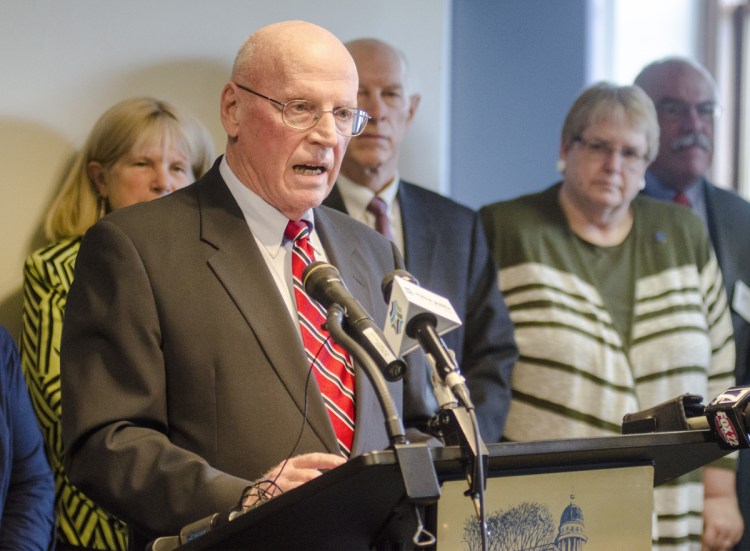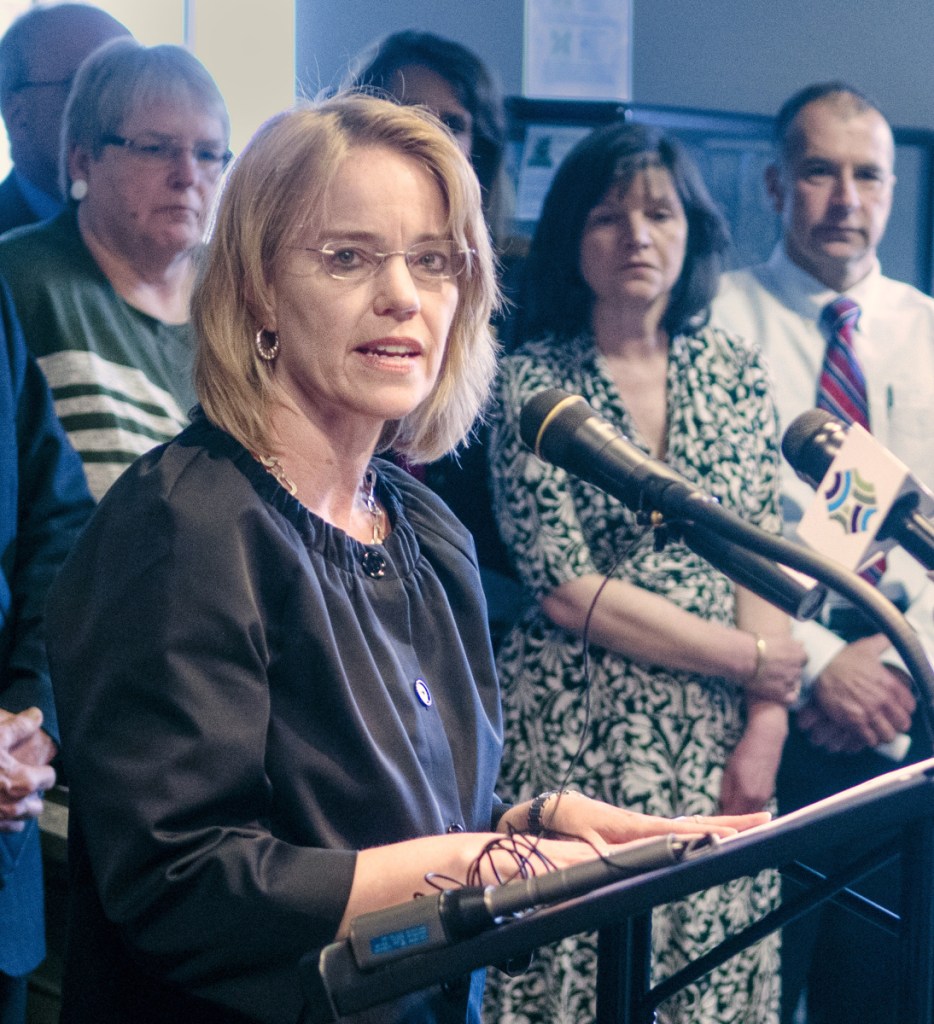AUGUSTA — Opponents of a ballot initiative that would raise taxes on wealthier Mainers to pay for home care for the elderly and disabled said Wednesday the referendum question violates the Maine Constitution and federal privacy laws.
In November, Maine voters will consider a proposal to impose an additional tax on income above $128,400 to expand services such as home health care aides, home repair, hospice care and transportation. The “Act To Establish Universal Home Care for Seniors and Persons with Disabilities,” the proposal from the Maine People’s Alliance, is the latest example of progressive groups using Maine’s citizen initiative process to attempt to achieve policy victories at the ballot box rather than through the Legislature.
But at a news conference Wednesday at the State House in Augusta, representatives of the Maine State Chamber of Commerce, the Maine Hospital Association and several attorneys called the referendum “deeply flawed” and warned of serious consequences if voters pass it in November. Offering a glimpse of their campaign strategy over the next six months, opponents accused the Maine People’s Alliance and other supporters of pushing a risky ballot initiative without allowing for a public hearing in the Legislature.
“It needs to be known that this initiative creates more harm than help for the very populations of people it intends to serve,” said Dana Connors, president of the Maine State Chamber of Commerce. “It over-promises and under-delivers while at the same time creating chaos to our economy by pushing a tax rate for many to nearly 11 percent.”
Former Maine Supreme Judicial Court Chief Justice Daniel Wathen called the referendum “deeply unconstitutional in many respects.” Wathen said the proposal would allow private entities to elect people to serve on the board that would administer the program when the power to elect or appoint such individuals is “a sovereign power of the state.”
“In effect, it would result in nine privately elected persons from within the home health care industry controlling this $310 million project with no one being accountable to the citizens,” Wathen said. “A 1984 opinion of the attorney general found a similar proposal unconstitutional and I believe that this would be struck down, without question.”
But Mike Tipping of the Maine People’s Alliance said the Universal Home Care Trust Fund Board is merely using a model that Maine already employs for several other boards – including the Maine Potato Board – whose members are not elected or appointed by the state.
Kathleen Healy, an attorney at the firm Verrill Dana who specializes in health care law, raised concerns that the referendum could violate federal Health Information Privacy, or HIPAA, rules by allowing disclosure of client information. The proposal would allow “constituency associations” – groups of agencies, personal caregivers or clients wanting to advocate before the board – to have access to names and contact information for individuals within that constituency for purposes of inviting them to join the association and participate in board elections.
Healy equated that to “electioneering and campaigning” and noted there is no exception under HIPAA or other federal privacy laws for such activities.
“The referendum’s requirement that the names and contact information of Maine’s elderly and disabled populations, without their permission, be shared for election purposes is in all likelihood a violation of federal medical privacy law,” Healy said. “The referendum was not reviewed or considered in the customary manner, and I am not aware of another state that has a similar law.”
Tipping tried to refute any suggestion that the referendum would allow the disclosure of private medical information. He pointed to language in the referendum’s draft legislation saying the board may adopt rules “for the confidentiality of lists.” Additionally, the legislation would require that constituency associations “maintain the confidentiality of the list and may not share the list with the public or any other entity not authorized by the board.”
Attorney Jonathan Block, who specializes in tax law at the firm Pierce Atwood, said the referendum would give Maine the third-highest tax rate in the nation for upper earners. And as a result, Maine would be “so far out in left field compared to other states that we would not be able to compete for talent,” Block said.
In an interview, Tipping responded that the referendum would only apply to the wealthiest 1.6 percent of Mainers, and that the issue of affordable home-based care is an important one because of Maine’s aging population.
“This is a group of wealthy executives and lobbyists who don’t want to lose their tax loophole,” said Tipping, noting that Maine’s top tax rate has fallen several times under Gov. Paul LePage. “It is a popular grassroots issue and they (choose) to tell lies about it to stop it and to preserve their tax cuts.”
In November 2016, voters approved a 3 percent tax surcharge on wealthy Mainers in order to funnel additional money into public education. But lawmakers repealed that surcharge last year and increased education funding to offset some – but not all – of the revenues that would have flowed to schools under the ballot initiative.
Kevin Miller can be contacted at 791-6312 or at:
Twitter: KevinMillerPPH
Send questions/comments to the editors.





Comments are no longer available on this story